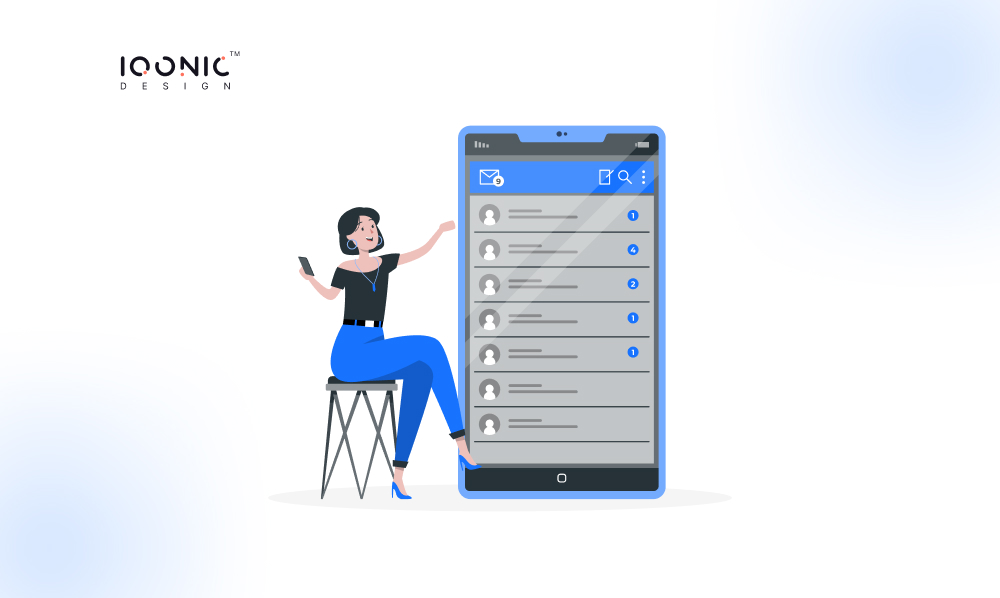
How Does a Mobile App Help You To Win Local Business?
Local businesses are the backbone of communities, contributing to the local economy and providing essential goods and services.
In today’s digital age, mobile apps have become indispensable tools for local businesses to thrive.
This blog will explore how mobile apps can address local businesses’ common challenges and ultimately help them succeed.
Understanding Local Business Challenges
1. Competition from Larger Chains
David vs. Goliath:
Small local businesses often compete with big chains armed with massive resources.
Mobile App Advantage:
Mobile apps level the playing field by allowing local businesses to reach customers directly and provide personalized experiences.
2. Limited Marketing Budget
Budget Constraints:
Many local businesses have tight marketing budgets.
Cost-effective Marketing:
Mobile apps offer cost-effective marketing channels like push notifications, social media integration, and targeted advertising.
3. Reaching Target Audiences
Targeting Struggles:
Identifying and reaching the right audience can be challenging.
Precise Targeting:
Mobile apps enable businesses to collect data and target specific demographics, ensuring marketing efforts are more effective.
The Power of Mobile Apps
1. Valuable Tools for Local Businesses
i. 24/7 Accessibility:
Mobile apps are accessible anytime, allowing customers to engage outside business hours.
ii. Enhanced Convenience:
Customers can browse products and services and purchase with a few taps on their phones.
iii. Popularity Among Consumers:
As per surveys, consumers increasingly prefer using apps for shopping, dining, and local services.
2. Improving Customer Engagement
1. Push Notifications:
Apps send real-time updates, promotions, and reminders to keep customers engaged.
2. Loyalty Programs:
Reward loyal customers through app-based loyalty programs, encouraging repeat business.
3. Personalized Content:
Tailor content and recommendations based on customer preferences and behavior.
3. Increasing Visibility and Accessibility
1. Making Businesses Visible
a. Geolocation Services:
Mobile apps can utilize GPS to display a business’s location on maps, making it easier for customers to find them.
b. Local Listings:
Integration with platforms like Google My Business enhances local visibility in search results.
2. Mobile Search Optimization
SEO for Apps:
Optimizing app store listings with relevant keywords improves app discoverability.
Responsive Design:
Ensuring the app is user-friendly on various devices enhances accessibility.
4. Streamlining Operations
Appointment Scheduling:
Local service providers like salons and clinics can efficiently manage appointments, reducing no-shows and wait times.
Order Placement:
Restaurants and shops can offer in-app ordering, speeding up the process and reducing errors.
Payment Processing:
Secure mobile payment options like digital wallets simplify transactions, benefiting customers and businesses.
5. Building Customer Loyalty

Rewards Programs:
Implement loyalty programs within the app to reward repeat customers with discounts or exclusive offers.
Feedback Collection:
Use the Mobile app to gather customer feedback, showing you value their opinions and can make improvements.
CRM Integration:
6. CostEffective Marketing
Social Media Integration:
Share content and promotions on social media directly from the app, expanding your reach without additional costs.
InApp Advertising:
Promote products or services within the app to a targeted audience, reducing ad spend wastage.
UserGenerated Content:
Encourage customers to share their experiences within the app, creating authentic content that attracts new customers.
7. Security and Trust
1. Addressing Mobile App Security Concerns
a. Data Encryption:
Ensure sensitive customer data is encrypted to protect it from unauthorized access.
b. Regular Updates:
Regularly update the Mobile app to patch security vulnerabilities and reassure customers of your commitment to their safety.
c. Privacy Policies:
Communicate your app’s privacy policy to users, detailing how their data is used and protected.
2. Building Trust through Secure Apps
a. Transparency:
Be transparent about your security measures and data handling practices.
b. User Education:
Educate users on best practices for app security, such as setting strong passwords.
c. Customer Support:
Choosing the Right Mobile App Strategy

Tips for Choosing the Right App Strategy
i. Know Your Audience:
Understand your target audience’s preferences, behaviors, and mobile usage habits.
ii. Budget Considerations:
Assess your budget realistically and choose an app strategy that aligns with your financial resources.
iii. Define Clear Goals:
Set specific goals for your app, whether increasing sales, improving customer service, or expanding your reach.
iv. Platform Selection:
Decide whether to develop an app for iOS, Android, or both based on your audience’s platform preferences.
Development and Maintenance
App Development Process:
Mobile app Development involves planning, design, development, testing, and deployment. It’s crucial to choose an experienced developer or development team.
Regular Updates:
Keeping the app up-to-date is vital for security, performance, and staying relevant. Regularly add new features and improvements to meet evolving customer needs.
Conclusion
In summary, mobile apps are invaluable assets for local businesses due to their:
- Accessibility and convenience for customers.
- Ability to enhance engagement through features like push notifications and loyalty programs.
- Capacity to increase visibility and streamline operations.
- Role in building customer loyalty and cost-effective marketing.
- Contribution to security and trust building.
- Importance in aligning with the right app strategy.
- Need for regular updates to ensure functionality and security.
In today’s competitive landscape, mobile apps have the potential to help local businesses not only survive but thrive. They provide the tools to overcome common challenges, connect with customers, and grow in an increasingly digital world. Embrace the power of mobile apps to take your local business to new heights.
Ready to explore the benefits of a mobile app for your local business? Contact Iqonic Design, an IT service agency, today to discuss your app strategy and take the first step toward success.






